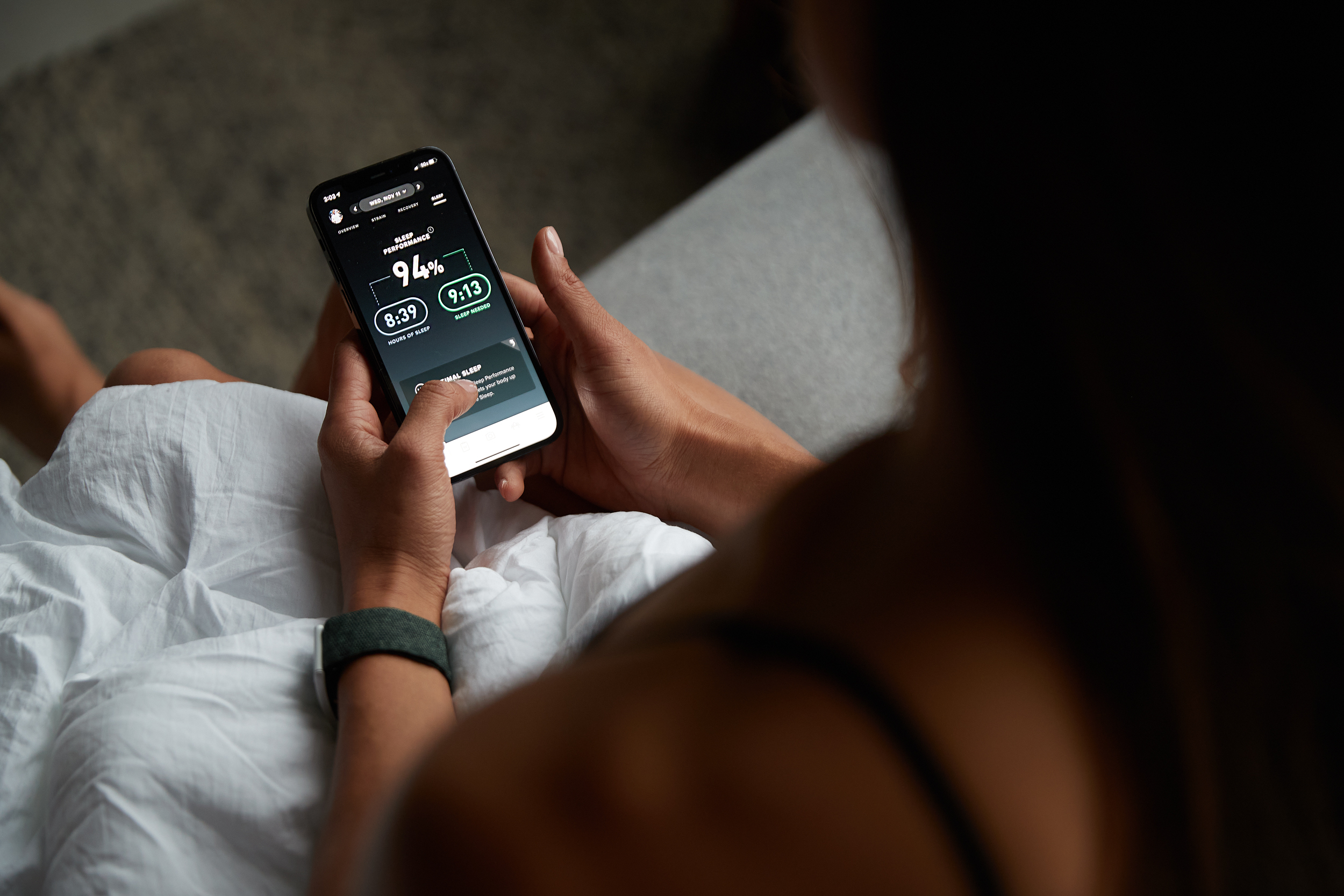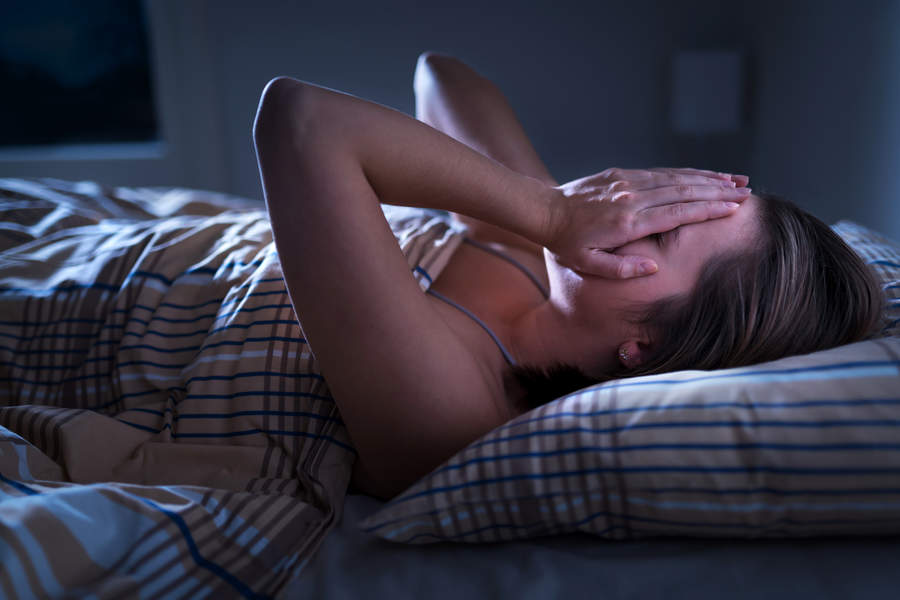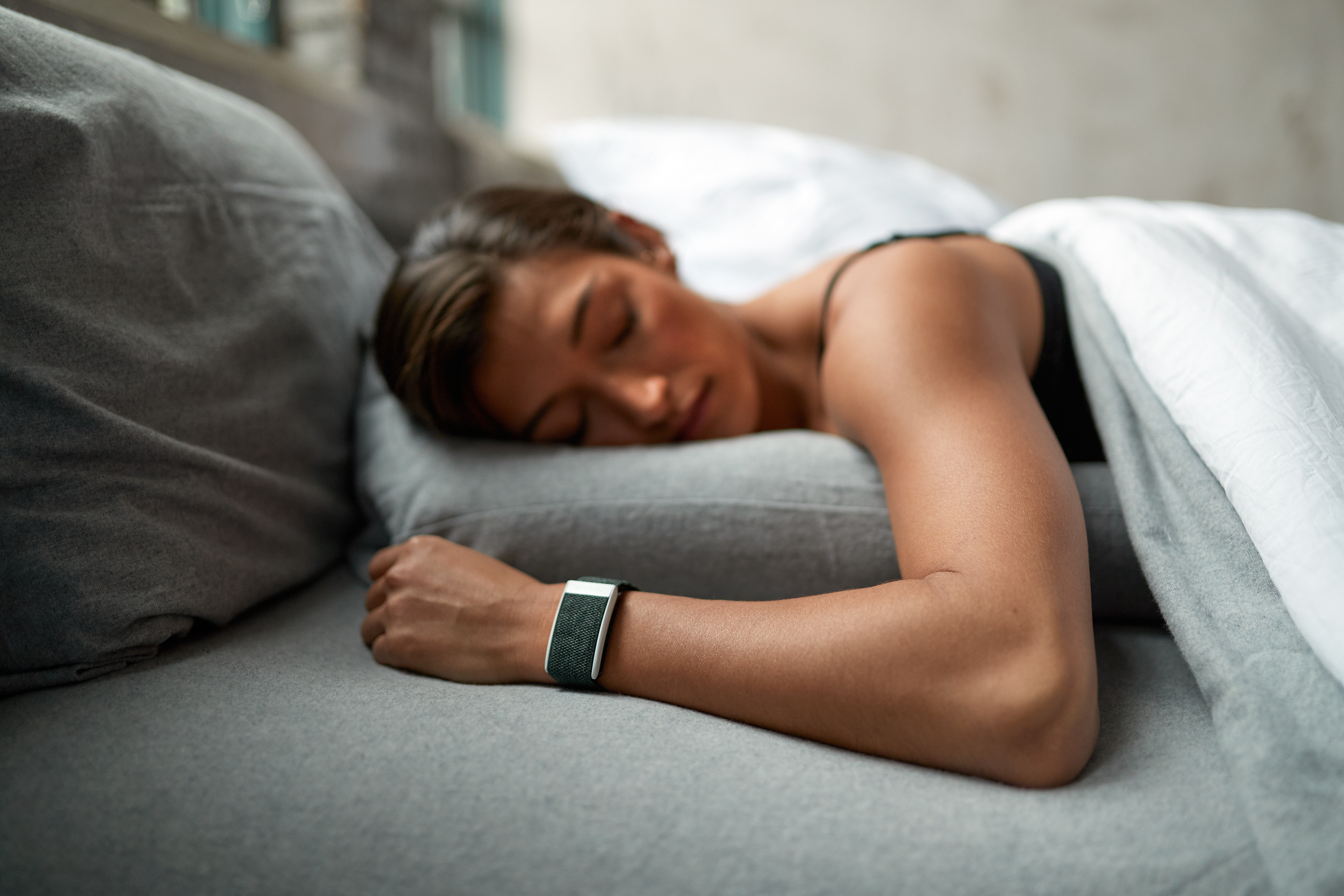
As the adage goes, you don’t get fitter from training, you get fitter from recovering from the training, and a crucial part of any good recovery regime is high-quality sleep. With the latest range of wearable tech able to track your sleep, it has never been easier to monitor the amount of sleep you get. To help explain how crucial sleep is in performance we caught up with Kristen Holmes, Principal Scientist at Whoop and a specialist on human performance.
For a lot of us, an area that we could all benefit from improving is the amount the quality of sleep we are routinely getting. Along with training and diet, sleep is one of the cornerstones of any good structured training. Understanding how to increase sleep and the benefits it can bring is the first step in unlocking the performance gains that optimised sleep can bring.
How much sleep should we all be getting?
Everyone knows that getting a solid 8-9 hours of sleep is often considered the target duration, however, for a lot of us leading busy lives getting this amount of sleep regularly is not always achievable. For a lot of people getting 5-6 hours of sleep per night might sound closer to reality but this does potentially come at a cost, especially if you are participating in endurance sport.
Holmes explains that sleep plays a crucial role in the body's ability to physically and mentally perform. This is due to a number of factors such as muscle repair and growth. "Sleep is a key time when your muscles can repair and regenerate.”
She goes on to explain that getting enough sleep can also improve cognitive function. Not getting enough sleep can slow your reaction times and cause brain fog when making decisions. How much sleep you get and the quality of it can also directly impact your hormonal balance with sleep-regulating energy levels, hunger-signalling cues, mood and your ability to adapt to stress functionally.
Everyone’s sleep needs are individual to their bodies and what they do from day to day. For a healthy active adult, sleep needs typically range from 7-9 hours. Generally speaking, if you are meeting your sleep needs you should not feel sleepy during the day. If you are undertaking a heavier-than-usual training phase, a nap before 3 PM might help recovery, advises Holmes.

The body needs to prepare for sleep
When looking to find a routine that best promotes high-quality restorative sleep, Holmes has a few pointers. For many of us, the concept of a sleep routine probably starts around an hour before heading to bed but it turns out we should be thinking about sleep a lot earlier than this.
Holmes starts by saying, “Athletes need to recognise that preparing for sleep begins the moment they wake up.” Ensuring that you get exposure to morning light within the first 20 minutes of waking up is critical for setting your body’s circadian rhythms.
Making sure that this rhythm is aligned with your day is important for ensuring that your body continues to produce melatonin at night. Although melatonin is often described simply as the body’s sleep hormone it has a role to play in other functions such as eye health, growth hormone production and can also help with the effects of seasonal depression.
Holmes also advises that caffeine consumption should end at least six hours before you plan to head to sleep to give its effects time to fully wear off and you should have a gap of a few hours between consuming a heavy meal and going to bed.
To begin the wind down to sleep the brain needs to receive a dark signal to know it is time to sleep. Spending some time in a low-light environment before bed will promote the signals for sleep. Holmes says that “athletes can improve sleep by with a consistent sleep-wake time and a cold, dark, and quiet sleeping environment.”
The time you go to sleep matters
Everyone’s sleep routine is different but it turns out that not all sleep is equal and getting seven hours of sleep if you are heading to be after midnight will not have the same positive and restorative benefits that an earlier bedtime would provide.
One of the reasons behind this comes back to your body’s circadian rhythm. This is your body’s natural preference to sleep in sync with the light-dark cycle which means going to bed no later than a few hours after the sun sets.
“Modernity makes this tough but the fact is, we haven’t adapted to blue light after the sunsets. And secondly, melatonin your sleep hormone needs specific conditions to be produced and secreted. Exposure to morning light and darkness at night will ensure strong melatonin production.”
It is for this reason it is better to get up a little earlier to complete tasks rather than extending your evening into the early hours to get things done where possible.
What does the ideal sleep routine look like?
If you're looking to optimise your sleep routine to facilitate better recovery from training, Holmes details a comprehensive list of everything you can do to improve sleep quality. Much like with training, the ultimate key to sleep helping your recovery is consistency. Making sustainable small improvements will net a greater gain than making big changes that are only achievable sporadically.

Pre-bedtime routine
Holmes stresses that it is important to allocate some time to wind down before you go to bed. Ideally, this should begin around an hour before you plan to sleep. Some things that can help you wind down include reading a book, taking a warm shower, listening to relaxing music or doing some breathing exercises. Slowing the pace down before bed helps your body to identify the cues for sleep.
Consistency is crucial when you go to bed as this helps improve your quality of sleep. Things like going to bed at roughly the same time each night can help stabilise your circadian rhythm creating a positive sleep routine for your body.
As easy as it can be to wind down in bed with a scroll through social media, this exposure to blue light from your phone's screen can affect your body’s willingness to sleep. Avoiding screens for the last hour of your day is recommended along with avoiding caffeine for at least four hours (ideally six hours) before bed to ensure that your body is in a naturally unstimulated state which is ideal for high-quality sleep.
Holmes also adds that working out late at night should be avoided as much as possible as this raises your internal body temperature which can make it harder to fall asleep.
Sleep environment
Where you sleep can also have a huge impact on how restorative your sleep will be. Making the room you sleep in as dark as possible is recommended, if it isn’t possible to make your room very dark, Holmes recommends investing in a sleep eye mask as an alternative.
The room temperature can also affect the quality of sleep. Aiming to keep the room on the cooler side will positively impact your natural sleep cycle. Having a fan on or keeping a window open to allow some fresh air in can help keep the room cool throughout the night and will prevent you from waking up in the middle of the night due to overheating.
Making your bed as comfortable as possible seems like an obvious step but investing in a comfortable mattress that works for your body type as well as some pillows that are the right depth to hold your head in a neutral position should not be overlooked. It is also worth finding some sheets that are comfortable on your skin as this will also make the whole sleeping environment more conducive to high-quality sleep.
The brain is very good at associating activities with environments. It is for this reason that you should try as much as you can to avoid stimulating activities from your bed, working or watching TV in bed can weaken the brain's association with the bed being for sleep. Equally, it can be beneficial to incorporate relaxation techniques such as breathing exercises whilst in bed to strengthen the association between bed and relaxation and restoration.

Should you be napping more?
Finding the time for a mid-day nap can feel like something of a luxury however even a short and sweet power nap represents an advantage to help recharge the batteries. When asked about napping, Holmes says, “Napping can present advantages when it comes to boosting your mood, alertness, getting rid of fatigue, and lowering your sleep debt.”
If you are looking to take a nap it is worth taking into consideration that there are two types of nap that you should be aiming for. The first one is the classic power nap. This should be 10-20 minutes long and can help top up your energy levels without the post-nap grogginess. If you have a bit more time at your disposal then a nap of around 90 minutes will allow your body to go through a full sleep cycle that will begin the recovery process and repair muscle tissue broken down in training.
Napping for a duration of between 20-90 minutes is likely to leave you feeling dazed and groggy as you will most likely be waking up mid-way through a sleep cycle. To prevent this, if you cannot commit to a full 90-minute nap instead just opt for a power nap.
When asked if there is a preferred time to take a nap Holmes said, “The best time to nap is ideally mid-afternoon before 3 PM, close to the midpoint between your usual wake up and bedtimes, and before it interferes with your nighttime sleep.”
Balancing your sleep distribution
On a fundamental level, sleep is commonly split into three different zones; light, deep and REM. It is important to get enough of each zone for optimal recovery from training, getting a full eight hours of sleep that is predominantly light sleep will not have the same restorative benefit as getting eight hours of sleep with 50/60% of it split between deep and REM sleep.
Consistency is once again the key to improving your sleep zone distribution. The combination of a bedtime routine, optimal sleep environment and good in-bed habits will all help improve sleep distribution and lead to enhanced recovery and performance.
Beyond this, other lifestyle factors such as eating a balanced diet, proactively managing daytime stress with moments of deactivation, and regular exercise all play a role in consolidated sleep. If you are finding that you are consistently a light sleeper it could be a hint that you need to assess your relationship with sleep and how you spend your time for the hour or so preceding it.
Blue light really can harm your sleep
The blue light emitted from screens is something to be aware of as this imitates the light that your body associates with daytime. Exposure to blue light before bed suppresses your body’s natural melatonin production making it harder for you to fall asleep. Beyond this, prolonged blue light exposure at night time can affect your circadian rhythm shifting it away from the natural cycle making it not just harder to sleep but also harder to wake up in the morning.
Looking at the effects it has on sleep stages, studies have shown that exposure to blue light at night can reduce time spent in deep and REM sleep which are both crucial for recovery and cognitive function. Increased screen time at night has also been linked to higher heart rates during sleep and lower HRV, which can affect overall recovery and performance leading to health implications.

Can sleep really be the key to increasing your performance?
Almost undeniably, improving the duration and quality of your sleep will lead to greater performance gains. It is commonly said that a lot of athletes do not actually over-train but instead under-recover and getting better sleep can dramatically increase how effectively you recover between sessions.
Dialling in a sleep routine that works with your life and taking regular naps where possible can all promote greater recovery for both your body and mind. If you are looking to increase your training load or you are simply finding that you are not feeling fresh the day after a typical training ride then the first thing you should make sure is in check is your sleep. Neglecting this aspect of your daily routine can massively impact your athletic potential.







